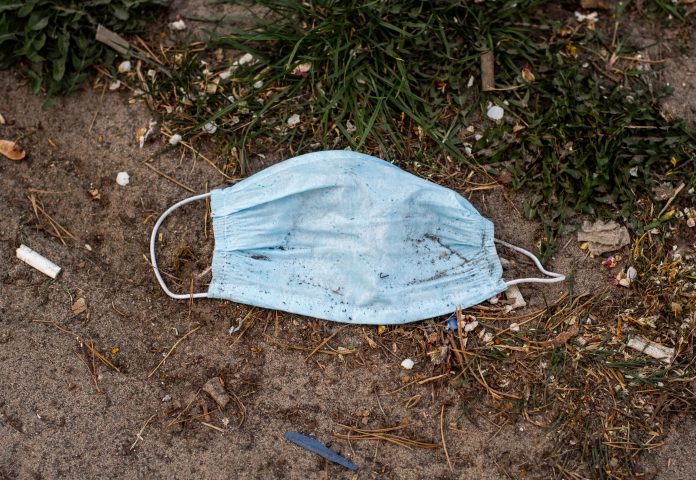Steve Castree, founder and director at Climate Wise, explores how we can become part of the solution, not the pollution, when it comes to plastic waste and our daily lives
Plastic waste is a major contributor to human pollution and causes a huge amount of damage to the natural environment. Studies have reported that of the 8.3 metric tonnes of plastic that we have produced, a staggering 6.3 million tonnes has become plastic waste. The U.N. Environment reports just nine per cent of this has been recycled, with the majority finding its way into landfill, our oceans and waterways.
Plastic Free July is the perfect opportunity for us all to stop and consider our own use of plastic. Now is the time for us to take personal responsibility to be part of the solution, instead of contributing to the very real and growing problem of plastic pollution.
Tackling the issue can seem overwhelming and difficult to approach. However, making small changes to our own, and our family’s, lifestyles can make a real impact in reducing our collective plastic pollution.
Review and adjust day-to-day habits
In today’s quick-moving world, many of us are challenged with increasingly fast-paced and busy lives. Often, convenience is king, meaning that plastic waste can quickly become a major player in our day-to-day routines.
Necessities such as food, drink and hygiene provisions alone can be a minefield of polluting plastics. Most supermarkets are laden with single-use plastics, and it can be difficult for even the most cautious of us to avoid foodstuff covered in wasteful packaging altogether. However, there are plenty of simple ways of reducing single-use plastics in your weekly shop.
Firstly, consider where you shop. There are a growing number of zero-waste supermarkets, offering plastic-free or unpackaged dry and fresh foods. These stores allow you to take your own containers and fill up as required, allowing you to avoid both food waste and single-use plastics. If you are not fortunate enough to be local to one of these stores, buying in bulk and choosing loose fruit and vegetable items is a straightforward way of quickly cutting down on excess waste. Alternatively, taking your own reusable containers to be filled at your local grocers, butchers of fishmongers is an effective way of avoiding packaging while also supporting local businesses.
Hygiene and bathroom products also present a range of packaging challenges. Luckily, there are now a huge range of brands which offer sustainable solutions, including shampoo, conditioner and soap bars, bamboo toothbrushes and plastic-free cotton earbuds. Again, buying in bulk or visiting a zero-waste refill store are brilliant places to start.
It goes without saying that avoiding single-use carrier bags is a simple first step towards greener shopping habits. It is all about being prepared, ensure that you have reusable bags close to hand, in your car, desk or handbag, so that you aren’t caught short and forced to request a plastic one which can take over 1,000 years to break down.
Be prepared when heading out of the house
Careful shopping and plastic-free habits at home can quickly be undone when we find ourselves outside the house. Organisation is the best method of combatting the use of plastic when out and about.
Consider investing in a reusable drinking bottle that can accompany you whenever you head out. Additionally, if you’re someone who is likely to visit a café when on the go, purchasing a reusable mug will help you to avoid contributing to the estimated 2.5 billion disposable coffee cups which the UK throws away each year. Alternatively, choosing to sit-in for your beverage avoids the need for disposable cups entirely.
The UK Department for Environment and Rural Affairs found that an estimated 4.7 billion plastic straws and 316 million plastic stirrers are disposed of every year, making it a big contributor to our plastic waste problem. Help to minimise your involvement by looking into reusable alternatives to single-use plastic straws, including washable bamboo, silicone, and metal options.
As we adapt to life with COVID-19, masks have rapidly become an important feature of life outside of the house. As a necessary precaution when visiting shops, attending social gatherings, and travelling on public transport, it is important to consider the impact that your use of masks has on the environment. The World Wildlife fund highlighted that if just 1% of the masks used worldwide are disposed of incorrectly, that 40 thousand kilograms of plastic would be distributed into nature. To avoid contributing to this problem, while helping to halt the spread of COVID try to purchase a washable cotton mask, both large retailers and small, independent creators have responded to the demand by creating an impressive selection of cotton masks.
Consider your wider environmental impact
Plastic waste is a huge environmental issue that we can all take simple, inexpensive steps to improve. In addition to reducing your plastic impact, it’s also important to consider your personal contribution to other areas of climate change, including your carbon footprint. Together, we can all make a real difference to helping maintain our planet’s environment and reduce the devastating impact of climate change.











